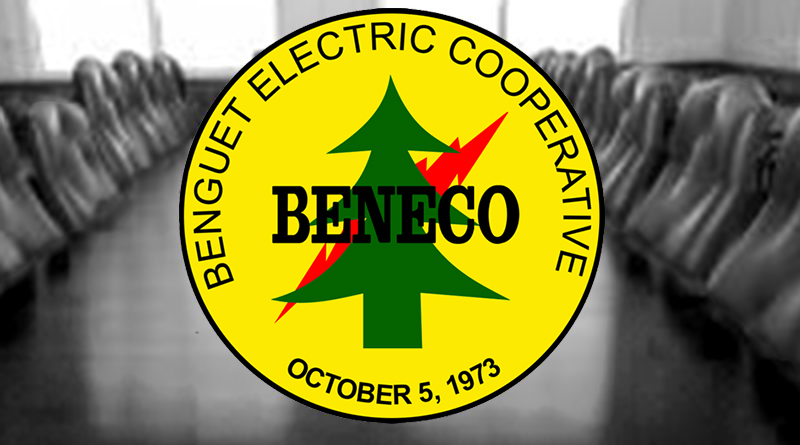This mid-year of our troubles, there’s this pensive, melancholy feeling which overpowers the heart of most Cordillerans and lowlanders when they see twilight descend, before it’s overtaken by night.
As far they look forward through uncertain atmosphere, to forms and dwellings from a distance lit by light, many fall into a train of musing.
How many an unsuspecting and impatient eye watches the golden sun go down into the glowing bosom of the West? How many hearts beat high with suspense or disquiet, while the wan twilight deepens into evening, and the stars, one by one, stand sentinels in the sky?
How many keep thinking what will tomorrow bring? What good news will ring our ears a-glowing?
The answers, fine friends, are blowing in the wind. . .
Nonetheless, the rains have come at last, with smiles as they used to wear during mid-year, when rains step over towering mountains of Cordillera Administrative Region (CAR) with light and song in their coming – to proceed the heavy typhoons.
Feeling of better times ahead – seems coming, too, if you try to look from your windows over Baguio’s blossoming flora – regale our nostrils with the inhalation of fresh air and the fragrance of Benguet pine trees hover above border lines of the city and its rural neighbors.
If there’s any positive enjoyment that both Cordillerans and lowlanders face today, it’s that the cloud of being hemmed at home momentarily has been cast aside.
There’s nothing so graceful as a cloud in its dissolution. Yet, clouds are like flowers. In their fading and passing away, we lose them with regret.
Still, there is a silver lining in the passing cloud. It leaves a message of hope in this times of anxiety.
So it came to pass last week that a cascade of messages reached Ah Kong’s three-footed and creaking desk, notes that narrated happily how many of Herald Express readers made do with their time to be one step away from the shackles of boredom while secreted at home, waiting for authorities to relax quarantine rules.
Some wrote they did their best to follow government regulations, staying at home to hide from a foe, an enemy described by Ah as respecting no boundaries and which its only agenda is a harvest of death.
Some wrote, “nagbilang kami ng butil ng bigas, mais, monggo at dried beans pa,” while home-confined; others said they read books.
Some said they would have wanted trying their hands on home gardening, only they have no space in their abodes to do so.
Some, particularly the husbands, wrote, “they petted and caressed daily their roosters.” The result? Their Missus wet on a rampage nagging as the husbands woefully counted the times their Missus went a-nagging whenever the husbands crooned sweet nothings to their roosters.
Those without roosters to pet wrote, “they helped their Missus regularly in the home chores and cooking.”
Aha, didn’t Ah tell that real and courageous men wear aprons and that men are better in cooking than the women, eh?
Some wrote that during this struggling times, “they just wanted to change and be better persons.”
Op kor, op kors, No argument about that. For Ah approvingly says these highlanders and lowlanders who confided they wanted to change for the better aren’t competing with anyone by having the desire to play the game of being better than anybody.
They are simply trying to be the better persons, than the persons they were, yesterday and for the days to come.
Some, particularly highlanders and lowlanders who have relatives toiling as Overseas Filipino Workers (OFW), wrote, explaining “they feel sad for the plight of their relatives in other countries at this time, yet they hide their sadness with a smile.”
Ah’s heart goes to these highlanders and lowlanders – his kabayans, saying to them, smile, for nothing is more profound than a smile that struggled through tears.
Well, some wrote “they weren’t able to sleep and dream peacefully because of their confinement.”
Aaaahh! For these unsleeping and un-dreaming, don’t you worry none and remind Ah to send to you the pillow that he dreams on, so that you can dream on it, too.
Shown above are only some of the events of our readers regarding their experiences, showing that often experience can be a worse teacher – for it gives the test before presenting the lesson.
In opening up about their experiences, one of Herald Express readers, Ulsimo Dalianis who said he hails from Benguet, said, “How about you, Ah, can you also reveal to us your thoughts of having stayed home long?”
Siyiempre naman, Ah will tell Ulsimo. For having been confined long, Ah has arrived at the conclusion that Year 2020 really befits the title “Year of the Rat.” Why so? You ask.
This time, like rats we’ve all become. We are all in hiding. We only go out to get food and store the food to eat it later, like rats. When people come close to us, we scamper!
As for Ah, your ol’ acquaintance you’ll never forget, he wasn’t able to count rice or monggo kernels for there isn’t any rice or monggo in his house, so he took to prettily pouting his cabin fever by tracing events of how the months of this year travelled, like he travelled, until the coming of May.
Well, Ah looked back at the month of January, this year of his travels and remembered he had a mighty fine conversation with January. For January told Ah to ask February why things seemed heated up.
So Ah took to travelling again, asking February about events and February told Ah to ponder on things and put them in order at the mid of the other to get to the mid of the other.
More confused than ever, Ah journeyed to ask March what February was talking all about. March explained anyone who cannot see what they can ponder on when they get to the mid of the other will end thinking in disorder.
Disgusted that January, February and March were becoming philosophers too difficult to understand, Ah cast his travels to April and said, “Hey, April, your three months’ friends are becoming philosophers, telling me this mid and that mid to the other in disorder…”
Sighing, April said condescendingly to Ah, “Lakay Ah, what the three months wanted to mean was, in your journey of life, there was one decision that you have made that impacted on your life. Go and ask the month of May.”
But before he went to ask month of May, Ah stood for a moment at the bridge separating barangays Camdas Subdivision and Trancoville, Baguio City, and looked down at Balili River winding towards La Trinidad, Benguet.
On the banks of Balili River, where fertility once displayed beauty but marred with thrown trash and ugliness, Balili River at this Covid-19 time has reverted to its original form of being clear, thanks to cabin fever that has gripped residents living along the river bends.
At least for the time being, no trash has been thrown onto the waters. Ah hoped it remains that way.
For any Herald Express reader who loves to babble of green fields and streams of running crystal, it is natural to expect a rhapsody about Balili River coming to life.
Leaving Trancoville Bridge, he took to travelling to see month of May and echoed to May what the three months said to him.
Month of May looked at Ah with a jaded eye and said, “Just like what April said. What was one big decision that you have made during your journey of life, may I ask?”
Ah thought hard for long and said to the month of May, “The biggest decision I made during this present journey of my life was when I decided to get married.
“So why did you decide to get married?” Month of May asked further.
Ah scratched his head and then said, “My marrying was all the fault of a frog.”
“A frog!” The month of May exclaimed and pressed further, “How?”
Ah scratched his head again, not wanting to reveal “how,” but looking at the earnest face of May so surprised, he said in Ilocano, “Idi ngamin, adda nasabat ko nga tokak. Ngem bastos nga tokak didyay sinmabat idi kenyak ngamin, apoh bulan ti Mayo.”
“Nagtured nga nangsabat kenyak idi santu nagpukkaw-pukkaw nga kunana, “BA-AK! BA-AK! BA-AK! Sal-it, mangibabain.” Isu napilitan nak nga nag-desisyon nag-arem ti balasang ket isu gapu naki-asawa nak.”













